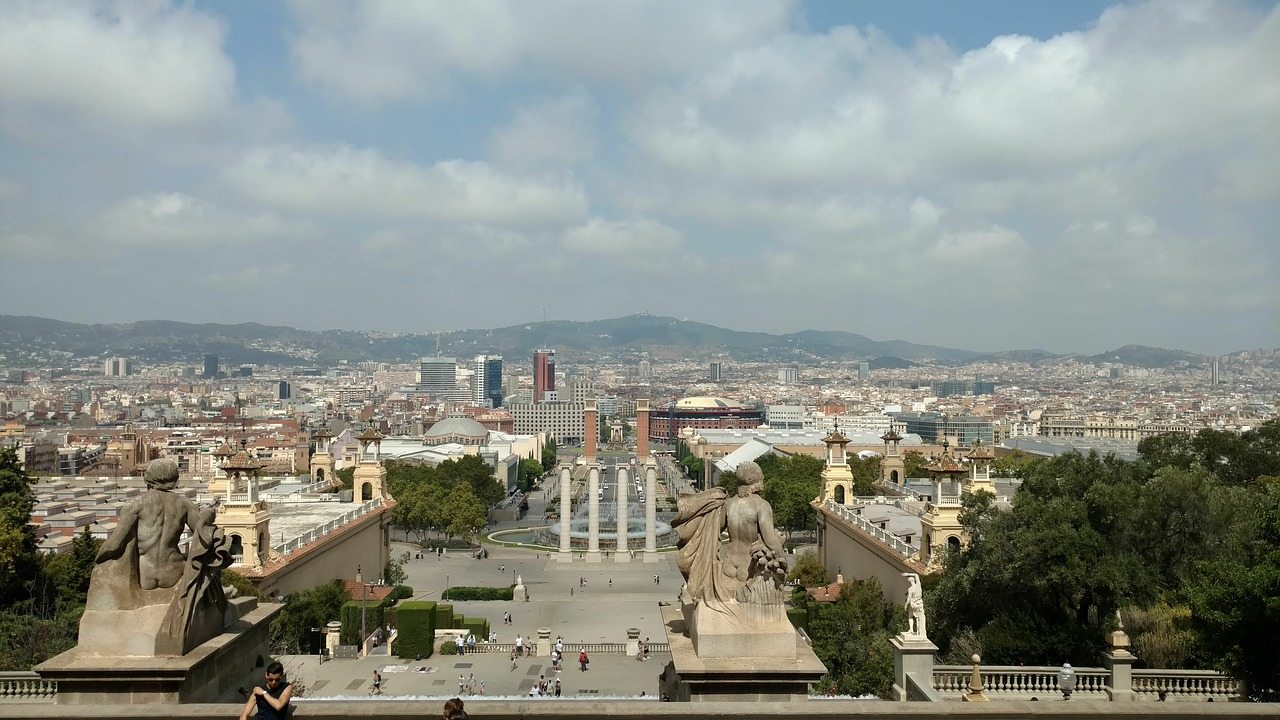Global Student Stories – Catalan students protest police brutality during the referendum
In the latest instalment of student stories from around the globe, Sarah Morland looks at the indefinite closure of the University of Nairobi, Catalan students’ protests over police brutality during the referendum, changes in tuition fees in East Africa, and how an Amsterdam student has been taking selfies with harassers in the street.
Kenya — UoN closes indefinitely following police crackdown
The University of Nairobi, Kenya’s oldest university, closed its doors indefinitely last Tuesday after 27 students were injured during a police crackdown.
On September 28, the University’s students protested the arrest of Embakasi East MP Babu Owino, an opposition lawmaker in the aftermath of the nullified August 8 election.
Police responded to the planned protest by entering student dormitories and classrooms, dragging out students and beating them with clubs as well as firing tear gas, according to a Reuters witness. At least 27 students were injured, including a number who were hospitalised.
The students continued to protest, targeting security offices and demanding the vice-chancellor Professor Peter Mbithi’s resignation for allowing and inviting the police to enter the institution. More protests were planned but the University was instead shut down by administrators.
John Orinidi, the University’s corporate affairs director, told Reuters: “The Senate has decided to send the students home for their (own) safety.”
A 20-year old veterinary student, who remained anonymous for fear of retribution, added that students wanted the vice-chancellor to resign “for allowing anti-riot police to enter campus and seriously injure students.”
The University has met with the Kenyan interior minister, police chief and the head of a government watchdog which is investigating complaints against the police.
According to rights groups, at least 28 people have been killed —mostly by police—in conflicts following the election. While Kenyan police are frequently accused of brutality and extrajudicial killings, officers are really charged and almost never convicted.
Spain — Catalan students protest police brutality during referendum
Young people and university students gathered in Barcelona’s Zona Universitària, cutting off one of the main entrances to the city, la Diagonal, as thousands protested and went on strike following the “brutal” police response to Sunday’s referendum.
The students staged an all-day sit-in across the main street by the University’s Faculty of Chemistry and Physics, after which some joined a protest the following afternoon.
To pass the time, the protesters reportedly ran a programme of activities between 8.30am and 2pm such as yoga classes, ball games, a talk on repression of the student movement and food with anti-fascist poetry readings.
The clashes between civilians and police during the Sunday independence referendum, which was deemed illegal by the central Spanish courts, left more than 800 injured according to the regional Catalan government’s statistics.
The strikes and protests following the police crackdown left public transport under-serviced and the city’s port “practically at a standstill,” as was the neighbouring Tarragona’s, according to La Vanguardia.
Carles Puidgemont, president of Catalonia’s Generlitat, condemned the “unjustified, abusive, and severe police violence committed by the Spanish government.”
While the regional government has claimed that over 90% of two million voters favoured independence, the referendum has no legal status with the results impossible to verify and contested by the Spanish government. There is little support of Catalan independence in other parts of the country.
East Africa — East African students to pay same tuition fees across region
From the start of next year, university students from across the East African region will be paying the same tuition fees. This part of the move towards actualising the new East African Common Higher Education Area (EACHEA)
Students from Kenya, Uganda, Tanzania, Rwanda, Burundi and South Sudan will pay the same as domestic students, although fees will still fluctuate across courses.
This comes after the region’s heads of state agreed to create the new area last May, and agreed on its six-point strategy and framework at a conference in Zanzibar two months later.
Chief principal officer of the Inter-University Council of East Africa (which mandated the decision), Benedict Mtasiwa, said: “The harmonised fees structure will be implemented in both public and private universities by the end of the year.”
The move is intended to improve and encourage student mobility across the area, as students currently pay as much as 30% more when leaving the country.
Another official added: “Operationalisation is on course, mobility of academic staff and students are already happening, mutual recognition of qualifications is already taking place for both academic and professional qualifications.”
Neatherlands — Student posts selfies with street harassers on Instagram
Amsterdam student Noa Jansma has been taking selfies which every man who harasses her in the street, before posting them on Instagram as a month-long project called Dear Catcallers.
Only one of the cat-callers asked what the selfie was for, but still chose to go ahead with the photo.
The 20-year-old began the project as a way to respond to behaviour ranging from wolf-whistling, being asked for sex and physically stopped in public; she told Newsbeat that just ignoring it “felt weird” as it meant men could get away with saying whatever they wanted without consequence.
“I just never knew what to do if someone catcalled me. If I went against it, the situation just escalated, and it would give me a real fright.”
She added: “I found this so weird that for half of humanity this is a daily life issue, while for the other half, they don’t even know this. So that’s how I came up with the idea – to just show it actually.”
She highlighted that she doesn’t want to shame the men and would remove the pictures if asked: “It’s more like a mirror, they’re coming into my privacy on the street in front of everyone, so I’m coming into their privacy.”
Many of the men involved were “proud” to have been asked for a photograph.

Comments